In the morning, try cutting down on caffeine.
Caffeine is a stimulant and can keep you awake 10 to 12 hours after drinking it. After lunch, cut back on your overall intake or consider avoiding caffeine all together.
When it comes to napping, less is more.
Be careful with the clock when it comes nap time. Napping after 2 pm or late in the afternoon (when were likely to be the most exhausted) can make insomnia worse. In addition, napping for longer than 20 minutes can make it harder for us to fall asleep at night. Instead, try napping early in the day and limit it to 20 minutes. Napping can increase alertness, improve your learning and working memory, heighten your senses and creativity, thus improving your overall health.
Be conscious of eating habits and exercise regularly.
Your daytime eating and exercise habits can affect how well you sleep at night. It is important to watch what you put in your body in the hours leading up to bedtime. Avoid heavy, rich foods, alcohol and fatty foods 2-3 hours before bed. Healthier eating tips can be found in our previous blog: YOU CAN EAT TO BEAT BACK PAIN.Other factors to consider is to quit smoking in conjuction to your new eating habits.
Exercising consistently can also help you sleep more soundly because it increases endorphins and releases the stress hormone cortisol from the body. Being active every day for 30 minutes is helpful to improve sleeping patterns.Need tips to stay active in cooler winter weather? You can read about it in our previous blog HERE.
Lastly, establish a sleep routine at night and make it a habit!
Having a sleep routine by going to bed at the same time every night and waking up at the same time in the am will help your body feel rested. Having a hard time going to bed? Try meditating before bedtime, read a book or listening to soft music to ensure you get the recommended 6 to 8 hours of sleep each night.
Looking for more helpful tips and information about pain? Call us at (714) 223-7000 for detailed information you need to know on pain or visit ocpain.net.
Interested in more information about pain prevention? Read our weekly blogs on pain management and get information on pain relief on your mobile or desktop device!

